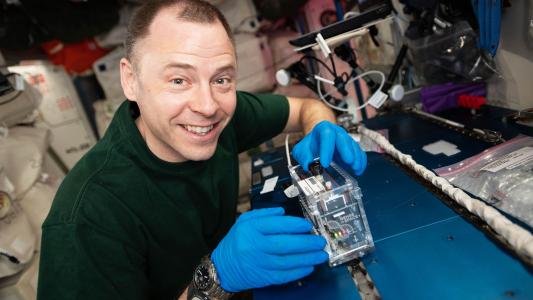A new CRISPR technology that focuses on activating genes, rather than cutting them out, has proven highly effective in several types of plants — suggesting it could help us create the superior crops of the future.
Gene activation: CRISPR is a tool for editing an organism’s genome. Often, this means cutting DNA to deactivate or replace undesirable genes — but the tech can also increase the expression of desirable genes, essentially turning their dial up to 11.
“Through activation, you can really uplift pathways or enhance existing capacity, even achieve a novel function,” University of Maryland researcher Yiping Qi, who led the development of the new tech, said in a press release. “Instead of shutting things down, you can take advantage of the functionality already there in the genome and enhance what you know is useful.”
Why it matters: The world population is growing, meaning we have more people to feed than ever before. At the same time, climate change is making it harder for some crops to grow as effectively as they once did.
If we can use gene activation to boost crops’ natural abilities, we might be able to increase yields despite a changing climate, ensuring no one has to go hungry.
The challenge: Getting CRISPR to accurately and efficiently boost the function of multiple genes at a time is difficult, and that’s limited our ability to use gene activation to develop better crops.
Researchers might be able to increase the expression of genes that help the crop grow faster or genes that help it thrive in hotter climates, for example, but not all of those at the same time.
How it works: Qi’s team has developed a new CRISPR technology, CRISPR–Act3.0, that can increase the expression of up to seven desirable genes in one fell swoop.
In a new study, the team demonstrated that the system could accurately and efficiently increase the activation of multiple genes in rice, tomatoes, and rockcress.
It does this by recruiting proteins that increase the activation of the genes and then binding them to precise locations in the plant’s genome — no DNA cutting required.
How can you help plants do more with their natural capabilities?
Yiping Qi
Added bonus: This tech wouldn’t only be useful for boosting genes we already know are desirable, but also finding new ones — researchers could activate a variety of genes in a plant and see if it leads to any helpful traits.
“We can design, tailor, and track gene activation with this new system on a larger scale to screen for genes of importance,” Qi said.
What’s next? Qi is hopeful the new CRISPR technology will open new doors in crop breeding and enhancement, helping researchers develop plants optimized for the changing world.
“People always talk about how individuals have potential if you can nurture and promote their natural talents,” he said. “This technology is exciting to me because we are promoting the same thing in plants — how can you promote their potential to help plants do more with their natural capabilities?”
We’d love to hear from you! If you have a comment about this article or if you have a tip for a future Freethink story, please email us at tips@freethink.com.
